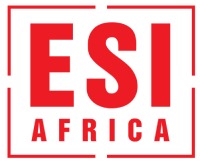How AfDB is powering Africa’s fight for fair climate finance
As COP30 gets underway in Belém, Brazil, world leaders are gathering for what is expected to be a defining moment for the Paris Agreement — a decade after the global pledge to keep warming below 1.5°C
Eight of the ten countries most impacted by climate change are in Africa, and yet the continent receives less than 3% of global climate finance, despite losing between 7 and 15% of its GDP to climate change.
To address this injustice, the African Development Bank Group (AfDB) has and continues to is pilot a range of innovative financing instruments aimed at helping African nations boost resilience and transition to low‑carbon pathways.
The institution, through several climate finance initiatives and instruments, is helping African countries access direct and flexible resources to implement their climate commitments under the Paris Agreement, including the Nationally Determined Contributions (NDCs) and National Adaptation Plans (NAPs).
As COP30 gets underway in Belém, Brazil, world leaders are gathering for what is expected to be a defining moment for the Paris Agreement — a decade after the global pledge to keep global warming below 1.5°C.
The main priorities for this COP are to accelerate the energy transition, ensure a just transition for the most vulnerable nations, and, above all, mobilise large-scale climate finance for developing economies.
Finance innovations from the African Development Bank
One of the oldest climate finance mechanisms still in operation within the Bank Group is the Climate Investment Fund (CIF). With a budget of $12.5 billion, the fund, created in 2008, has supported 47 investment plans and approved 45 projects since its inception, providing more than $1 billion in financing to the bank. Leveraging CIF resources, the Bank has also mobilised an additional $2.42 billion in co-financing.
The Bank Group said this funding has enabled low- and middle-income African countries to accelerate their climate adaptation efforts through programmes in clean technology, access to clean energy, climate resilience and sustainable forests.
Sharing the human impact of its initiatives, the Bank highlights the story of Dorcas Tshabu in the Democratic Republic of Congo. Through support from the Climate Investment Funds (CIF), Dorcas has fulfilled a lifelong dream to restore the forest of her homeland. After years of waiting, she now manages a thriving farm about 20km from Mbuji-Mayi, in the heart of the country.
“This used to be a savanna, everywhere. But I turned it into a forest. It’s the work of my own hands. Everyone who passes by here appreciates it. That makes me happy,” she said.
Since 2021, Tshabu has grown a lush 50-hectare forest with the support of the Integrated REDD+ Project in the Mbuji-Mayi, Kananga and Kissangai basins (PIREDD-MBKIS). This project, financed to the tune of €21.5 million by the African Development Bank as part of the Forest Investment Program (FIP), has addressed the main drivers of deforestation and forest degradation in the country’s three provinces.
Sustainable Energy Fund for Africa and more across Africa
Established in 2011, the Sustainable Energy Fund for Africa (SEFA) is also an essential facility in the development of clean-energy blended finance initiatives under the auspices of the African Development Bank. It provides catalytic finance to unlock private sector investments in renewable energy and energy efficiency.
SEFA supports interventions across three strategic priorities: green baseload production, green mini-grids and energy efficiency.
The 32MW Ilute solar project in Zambia is one of the more than 100 projects supported by SEFA since its establishment. In June 2025, the Fund committed to contributing $8 million to a total financing package of $26.5 million for this project, demonstrating its commitment to innovative solutions that advance the energy transition in Africa.
In 2022, the African Development Fund, the concessional arm of the Bank Group, established the Climate Action Window to deliver affordable financing and technical assistance to Africa’s most climate-vulnerable nations.
Backed by $429 million in initial funding, the initiative seeks to leverage $4 billion by 2025 and $13 billion over the longer term, ensuring faster and more reliable access to climate finance for adaptation and mitigation efforts.
Last year, the AfDB’s Board of Directors approved more than $31 million in financing through the Climate Action Window to strengthen climate change resilience in Sierra Leone, South Sudan, Djibouti and Madagascar.
This project is expected to reduce CO₂ emissions by some 720,000 tonnes and create 180,000 direct jobs, with a particular focus on women and young people. In addition, 90,000 farmers will be trained in climate-smart agricultural practices.
Anthony Nyong, Director of the Climate Change and Green Growth Department at AfDB, said these initiatives not only respond to climate change, but they also empower communities to take control of their future.
“They show that adaptation funding can and should be directed to the vulnerable communities that need it most.
“The Climate Action Window is more than just a financing mechanism; it is a lifeline for communities that face the harsh realities of climate change every day,” he said.
Cover photo: [cucgiorand]©123rf.com


